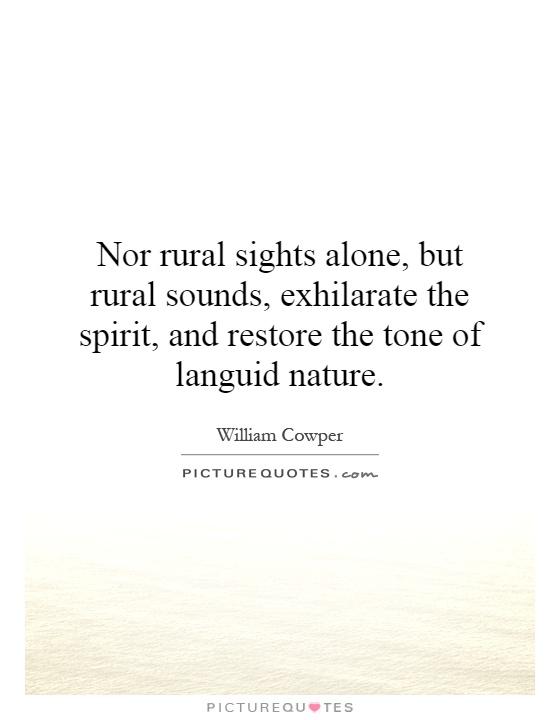Nor rural sights alone, but rural sounds, exhilarate the spirit, and restore the tone of languid nature

Nor rural sights alone, but rural sounds, exhilarate the spirit, and restore the tone of languid nature
William Cowper, a renowned English poet and hymnodist of the 18th century, was a keen observer of nature and its effects on the human spirit. In his works, Cowper often extolled the virtues of rural life and the restorative power of nature on the human soul. One of his most famous quotes, “Nor rural sights alone, but rural sounds, exhilarate the spirit, and restore the tone of languid nature,” encapsulates his belief in the healing properties of the natural world.Cowper’s own life was marked by periods of mental illness and despair, and he found solace and inspiration in the beauty of the countryside. His poetry often reflects his deep connection to nature and his belief in its ability to uplift and rejuvenate the human spirit. In his poem “The Task,” Cowper celebrates the simple pleasures of rural life, from the chirping of birds to the rustling of leaves in the wind. He believed that these sounds were not just pleasant to the ear, but had a profound effect on the soul, lifting it out of its languor and restoring its vitality.
For Cowper, the rural sounds of nature were a balm for the weary soul, a reminder of the beauty and harmony of the natural world. In a time when industrialization and urbanization were rapidly changing the landscape of England, Cowper saw the countryside as a refuge from the noise and chaos of city life. He believed that the sounds of nature had a calming and soothing effect on the mind, helping to restore a sense of peace and tranquility.












 Friendship Quotes
Friendship Quotes Love Quotes
Love Quotes Life Quotes
Life Quotes Funny Quotes
Funny Quotes Motivational Quotes
Motivational Quotes Inspirational Quotes
Inspirational Quotes